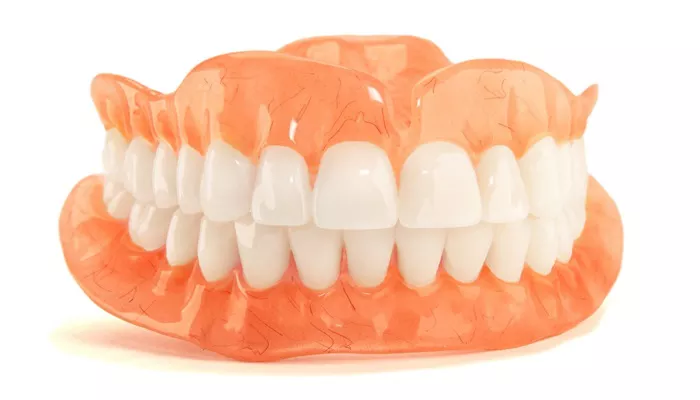Dental health is a crucial aspect of overall well-being, and advancements in dental technology have provided patients with numerous options to restore missing teeth. Two of the most popular methods are dental implants and dentures. While both are designed to improve the functionality and aesthetics of the mouth, they differ significantly in their construction, placement, and long-term effects. This article aims to provide a detailed comparison between dental implants and dentures, exploring their differences, benefits, and drawbacks from a dental professional’s perspective.
Understanding Dental Implants
Dental implants are artificial tooth roots made of titanium or other biocompatible materials. They are surgically placed into the jawbone to serve as a sturdy foundation for replacement teeth. Here’s a closer look at the key aspects of dental implants:
1. Construction and Placement
Material: Dental implants are typically made of titanium, a strong and lightweight metal that integrates well with bone tissue.
Process: The placement of dental implants involves a surgical procedure. The implant is inserted into the jawbone and allowed to heal over a period of several months. During this time, the bone tissue grows around the implant, securing it in place.
Integration: Once the implant is fully integrated with the bone, a connector called an abutment is attached to it. This abutment supports the artificial tooth, known as a crown, which is designed to match the patient’s natural teeth in color, shape, and size.
2. Benefits of Dental Implants
Durability: Dental implants are designed to last for many years, with some lasting a lifetime with proper care.
Functionality: Implants restore the full chewing power of natural teeth, allowing patients to eat a wide variety of foods with ease.
Aesthetics: The crowns attached to implants can be customized to match the patient’s natural teeth, providing a seamless and natural-looking restoration.
Bone Preservation: Dental implants stimulate the jawbone, preventing bone loss that can occur with tooth loss.
Comfort: Once healed, dental implants feel and function like natural teeth, offering unparalleled comfort.
3. Drawbacks of Dental Implants
Cost: Dental implants are generally more expensive than traditional dentures.
Surgery: The placement of implants requires surgery, which may not be suitable for patients with certain medical conditions or those who are anxious about surgical procedures.
Healing Time: The healing process can take several months, requiring patience and follow-up appointments.
Understanding Dentures
Dentures are removable appliances that replace missing teeth and surrounding tissues. They are made of acrylic resin or other materials and can be either partial (replacing some teeth) or complete (replacing all teeth in an arch). Here’s a closer look at the key aspects of dentures:
1. Construction and Placement
Material: Dentures are primarily made of acrylic resin, which can be colored to match the patient’s natural gum tissue and teeth.
Process: The creation of dentures involves several steps, including taking impressions of the patient’s mouth, creating a wax model, and then casting the final denture.
Fit: Dentures rest on the gums and are held in place by suction and/or dental adhesives. Partial dentures may also have metal clasps that attach to remaining teeth for added stability.
2. Benefits of Dentures
Affordability: Dentures are generally more affordable than dental implants.
Immediacy: Unlike implants, which require a healing period, dentures can be placed immediately after tooth extraction (in some cases) or once the healing process is complete.
Reversibility: Dentures can be removed and replaced as needed, making them easier to clean and maintain.
Aesthetics: With advances in technology, modern dentures can provide a natural-looking smile.
3. Drawbacks of Dentures
Comfort: Dentures can take some time to get used to, and patients may experience discomfort, sore spots, or difficulty speaking and eating initially.
Stability: Dentures can sometimes slip or fall out, especially if they don’t fit well or if the patient has a small or flat ridge.
Bone Loss: Without the stimulation of tooth roots, the jawbone can shrink over time, causing dentures to become loose and less effective.
Maintenance: Dentures require regular cleaning, soaking, and adjustments to maintain their fit and appearance.
Comparing Dental Implants And Dentures
When deciding between dental implants and dentures, patients should consider several factors, including cost, comfort, functionality, aesthetics, and long-term effects. Here’s a side-by-side comparison:
Cost: Dental implants are typically more expensive upfront but may offer a better long-term value due to their durability and bone-preserving properties. Dentures, on the other hand, are more affordable initially but may require replacements over time due to wear and tear.
Comfort: Dental implants feel and function like natural teeth once healed, offering unparalleled comfort. Dentures, while they can become more comfortable over time, may never feel as natural as implants.
Functionality: Implants restore full chewing power and provide a stable foundation for artificial teeth. Dentures, while they can allow patients to eat a variety of foods, may have limited chewing power and stability.
Aesthetics: Both implants and dentures can provide a natural-looking smile, but implants may offer a more seamless integration with the surrounding tissue and teeth.
Long-term Effects: Dental implants stimulate the jawbone, preventing bone loss and maintaining facial structure.
Dentures, without the stimulation of tooth roots, can lead to bone shrinkage over time.
Conclusion
In conclusion, dental implants and dentures are both effective options for restoring missing teeth, but they differ significantly in their construction, placement, and long-term effects. Dental implants offer unparalleled comfort, functionality, and aesthetics but come with a higher cost and a surgical procedure. Dentures, while more affordable and reversible, may require more maintenance and may not provide the same level of comfort and stability as implants.
Ultimately, the best choice depends on the patient’s individual needs, preferences, and budget. It is crucial to consult with a dental professional to discuss all options and make an informed decision that aligns with one’s oral health goals.
Related topics:

